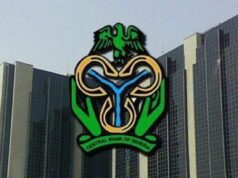TUES, 16 AUGUST 2016-Nigerian Automated Teller Machine, ATM, users are frowning at the sixty five naira (N65) charged by banks per withdrawal on using another banks’ ATM money dispenser. They describe the charges as over-bearing and difficult to understand given their dwindling spending power.
An estimated 13.5 million Nigerians use ATM cards on a daily bases, which recent survey reports suggest is still way below potential demand more than 10 years after Nigeria’s banking revolution. The primary reason why ATM was introduced in Nigeria was to decongest the banking hall and make withdrawal easier for the customers, but the charges on using ATM cards are becoming big issues for bank customers and that is even compounded by the little faith customers have on using the financial technology.
Some banks do not have enough branches in the nation and some of the Automated Teller Machines cannot be trusted to have cash to dispense or will have some strange ‘network’ related problem. As a result of this, their customers do not have any option than using other banks machines to do their transactions. Almost all the banks’ machines cannot dispense more than N20,000 at once. So, a customer that wants to withdraw N50,000 will be charged sixty five naira after withdrawing thirty thousand naira (3 times) and sixty five naira each on the remaining two withdrawals.
“That is the rip-off we are talking about. You can imagine the amount that will be deducted if that type of transaction is done throughout the week by a single customer, says an undergraduate student who says his fees and up-keep money is drawn through ATM in his school. His usual bank has no ATM machine installed in their school premises.
Our findings reveal that more and more banks deliberately ignore ATM installations in some areas where their competitors are already installed to take advantage of the ATM inter-bank withdrawal charges which runs into several millions daily.
Some customers interviewed by G&BJournal question the charges and, angry that the banks add little or no interest on their money deposit. They urged the Central Bank of Nigeria (CBN) to closely monitor the development and intervene to reflect customers concerns.
Report by Sylvester Okoh








